工事中 こうじちゅう kōji-chū
For the last two months a construction project has been underway next door to my apartment building. The sounds have a schedule and are louder at certain times of day, going silent only around 4pm, when I assume everyone has gone home. The building that stood there before has evaporated almost completely, and seems to be regrowing itself from nothing. Walking past the site and down the hill one can see the buildings in Shibuya1 in a way that you couldn’t before. It’s an openness that feels temporary. A glimpse of a view you weren't meant to have. Behind the white plastic that covers the construction site you can see the giant gap left behind by the building's absence—made up mostly of fixtures, stone, and soil. Leftover building bones.
One of my students (let’s call her K) shared a personal story with me the other day. Classes with this student are unique in that she is always in transit during our lesson. This time K called from her car which was parked somewhere just outside of Narita airport. She says her job there will be obsolete soon due to the pandemic regulations lessening by the day. K says she doesn’t mind, and that she always knew the job wouldn’t last. We spoke about airports and how they give us weird feelings in our stomachs: the fullness of anticipation when someone you care for is about to arrive, or the concave, confused blankness when they leave. And, perhaps even more powerfully, the feeling you have when you are the one doing the leaving.
When K was 25, she spent one year in Australia. While there, she met a man from Switzerland who she liked very much. She still remembers the day he left, and how she returned home to Japan just days after he returned to Europe. K never told him how she had felt. “His name was Martin.” She said, then said his name again quietly to herself. “There was no internet back then, and no cell phones. We couldn’t keep in touch.” When K arrived home at Narita airport, she saw with some surprise that her Japanese boyfriend was waiting for her at one exit, her father at the other. She laughs, embarrassed and entertained as she begins to remember something from 35 years ago she thought she had forgotten. “I chose the door where my father stood.”
“I wish I had told Martin how I felt.” She laments, then looks out of the car window. “If I can ever go to Switzerland one day, I want to tell him how I felt back then, all those years ago.” She sighs, then smiles when she looks at me. “If you meet someone you care for, 大切にしてね, taisetsu ni shite ne. Cherish them.”
I think of the window seat where F2 sat on our way to the airport. There were many things to be said, but we found ourselves quiet. When we spoke it was only to wonder out loud if we would ever see or speak to each other again. Trust had been wrung dry from the hands we were using to silently write to one another in his notebook.
The train to Narita is a familiar route, though it’s usually taken alone—on the way home for a short stay. The last landmark of Tokyo you can see on this train is the Skytree. It has this habit of appearing then disappearing behind buildings as if playing hide and seek. Our eyes followed it in our stillness, tracing where it may appear next. Eventually it disappeared for the last time. For F.
We passed by rice fields, and forests, by dilapidated buildings and through tunnels that made the windows go black. When we arrived at Narita my stomach clenched. Agreeing to have lunch gave us one more hour before he left. His friends, A and Z, ate with us. Neither seemed too bothered about the finality of F returning home. After all, it was their home too, where they would all return to at the end of their time spent away.
Of our party of four—eating udon3 at the airport and helping him carry seven years of his life in Japan in suitcases—it was just me who may never see F again. I felt like an odd appendix, an inconsistency to their prewritten and ever-intertwining chapters with one another. I wondered if F had ever hurt A or Z the way he had hurt me. We were all still here, carrying his bags with him. I tried to find strength in what felt like fading relevance—to look for that version of self sometimes found quietly humming beneath the self—but I could only notice that my hands were cold, and that A and Z were taking turns glancing up at me to see if I was still crying.
On the train ride back home, A sat with me. He kindly let me have the window seat even though it was technically his. He spoke to me of his degree, of sacrifices made, and the necessity of “shaking the thoughts” around in our head. Z slept with his arms crossed over his chest in the seat across from us. His phone had died and he had been awake for a full 24 hours. My hands were in my pockets, where they absentmindedly touched the things F gave me in a rush before he went through security: two old passport photos of him, his driving license that would soon expire, and a grey hat. Leftover relationship bones. Two weeks later, a large part of me wanted to set these things on fire.
My story is different from K’s. In her story, she regrets not being able to tell Martin how she felt. But my story consisted of unwavering telling, of believing in the possibility of foundation. It was the carrying of an endless effort to build through brokenness—to hold a story with openness though it was already littered with lies and painful scenes that were made blurry, out of reach, and kept ever indefinite. I don’t know that I have regrets, but I am beginning to see that I was led in directions that were not mine, and that in another’s eyes I was not held with the same reverence I so readily gave with my own.
1 the lemon tree drops lemons to land on the ground there And a room looks better with flowers in the vase Words Associated With November fall from the trees without earnest a companion of ease, you’re becoming 2 journey
3 the undoing of so much doing destruction of what you held dear loss of what was warm and near to you though it rested on your chest like a friend you didn’t have beneath this loss is the rattling of your own heart in its cage let there be cracks in the walls don’t be afraid because they are just windows they are just windows windows windows
Songs listened to on the way to Narita Airport:
Construction Notes:
Hi there. Jes here. Swallow was born in March, 2022, and is currently under construction. Exciting things are to come. If you find value in my work and want to see it grow, please support by subscribing and sharing it with others. Social media shares and emails to friends really go a long way. Thank you so much, and よろしくお願いします。Yoroshiku onegaishimasu.
Shibuya 渋谷 しぶや / Shibuya-ku 渋谷区 しぶやく : a famous ward in Tokyo known for its busy station, and crowded crosswalk “Shibuya Scramble.” Affectionately called by some Shibs, or Buya.
F is the pseudonym of my no longer significant other. Read on in Birds and bread and honey.
饂飩 うどん Thick noodles made from wheat flour that are often eaten in winter, and thought of as being rather comforting and warm.

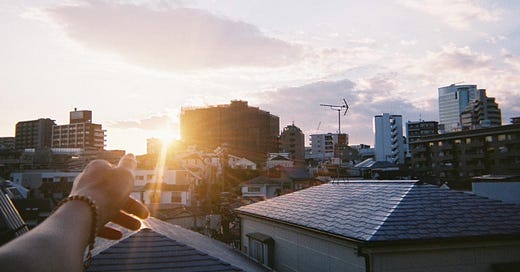


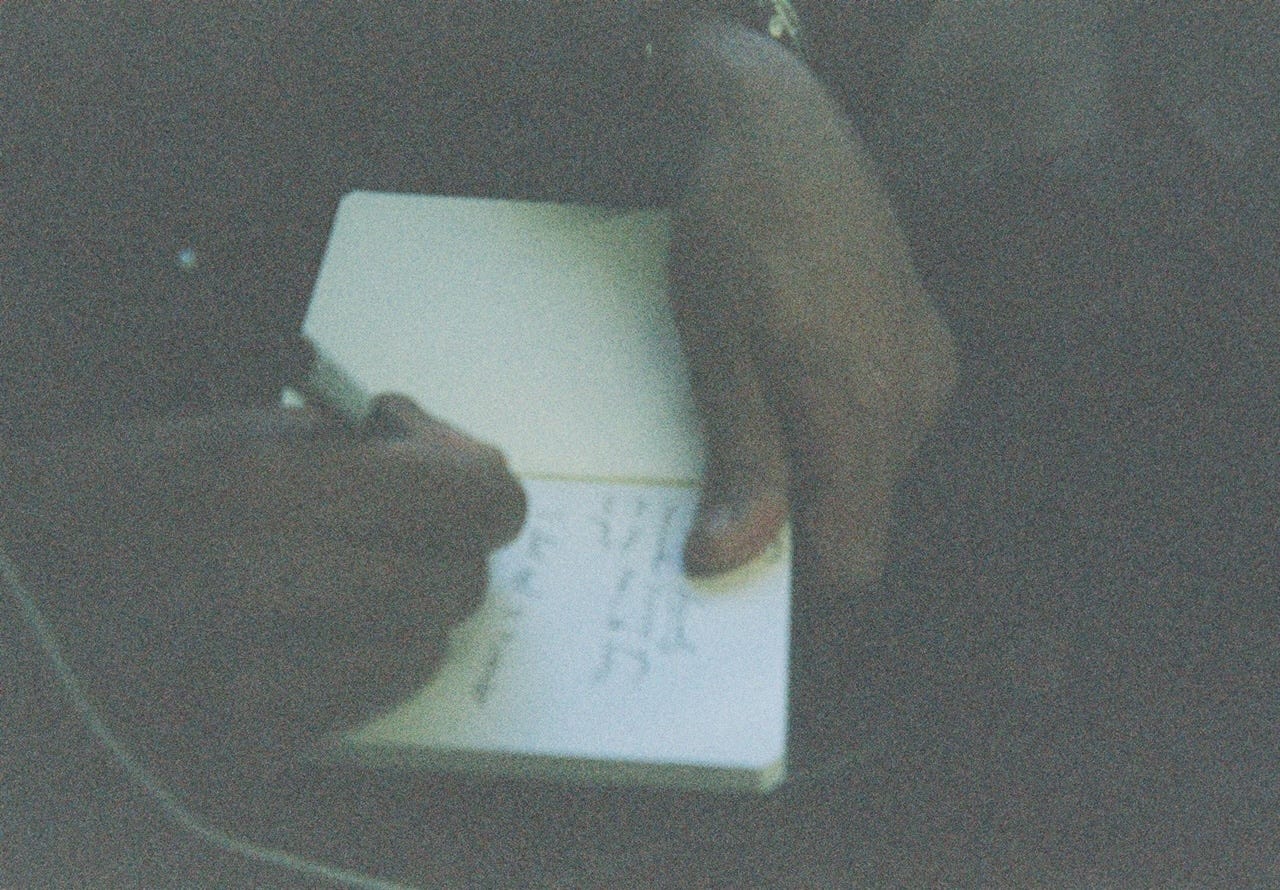
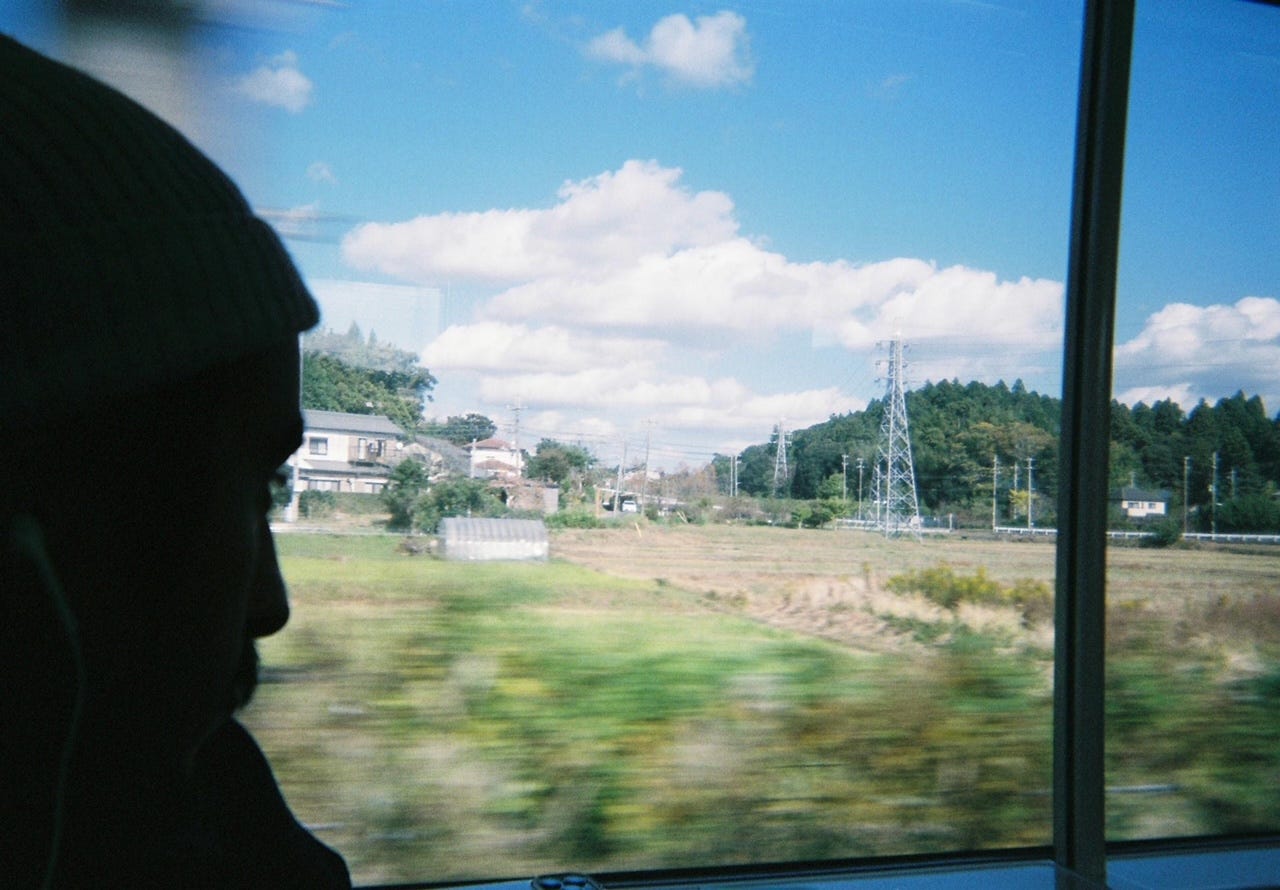

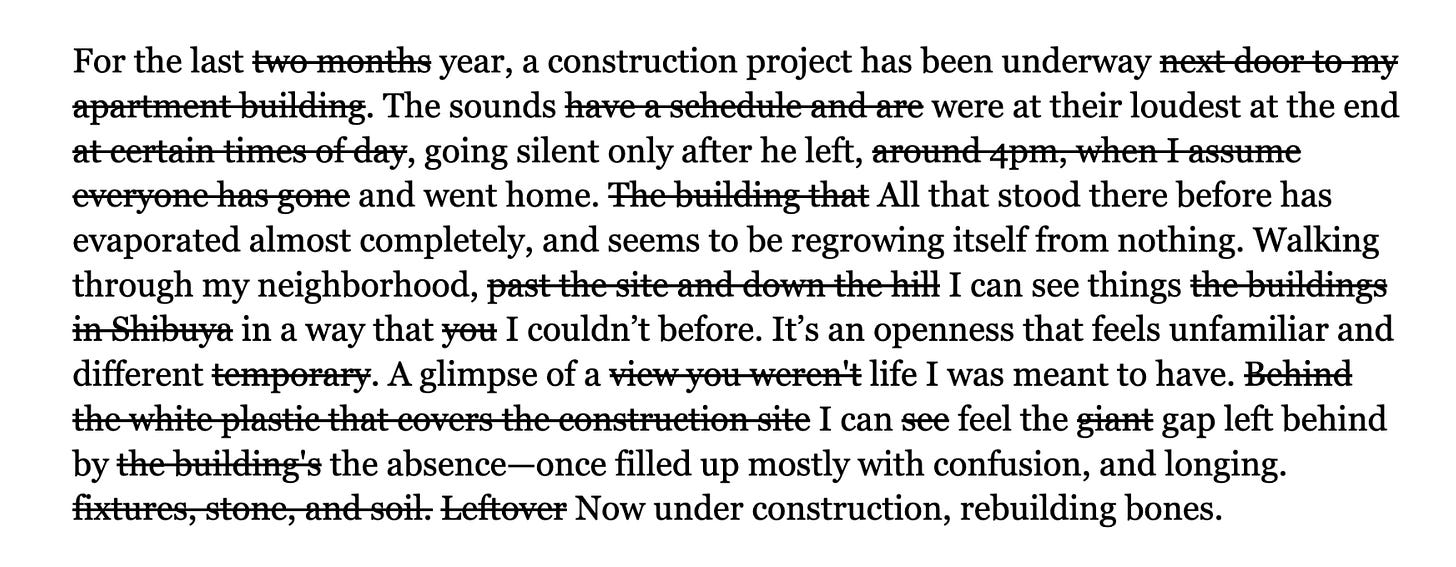



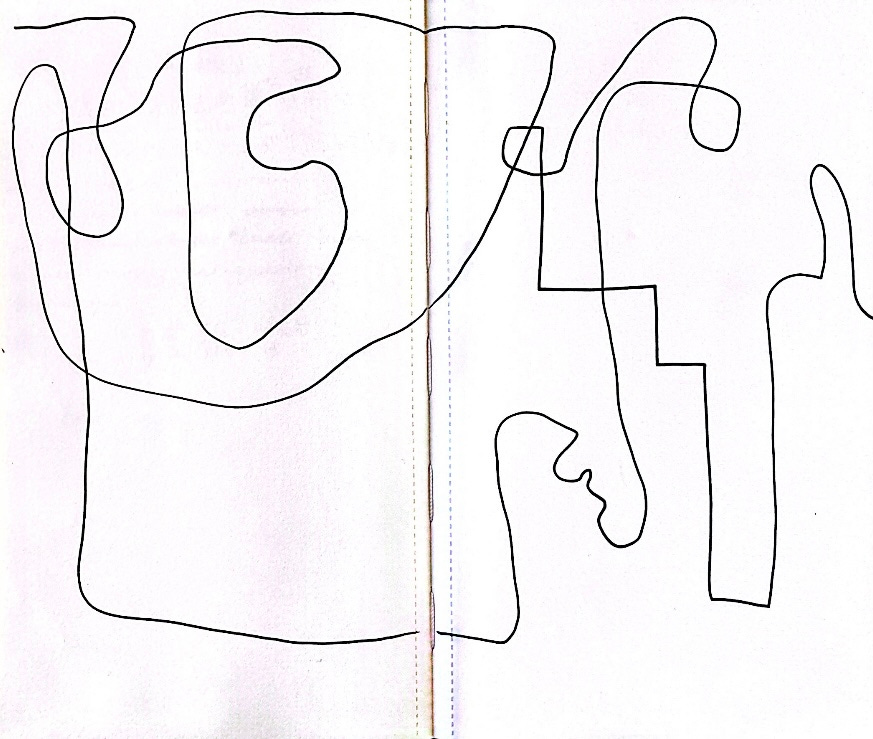

You are so brave to bear your heart in this way--to share an experience so many of us have had, yet did not have the courage to share. Thank you